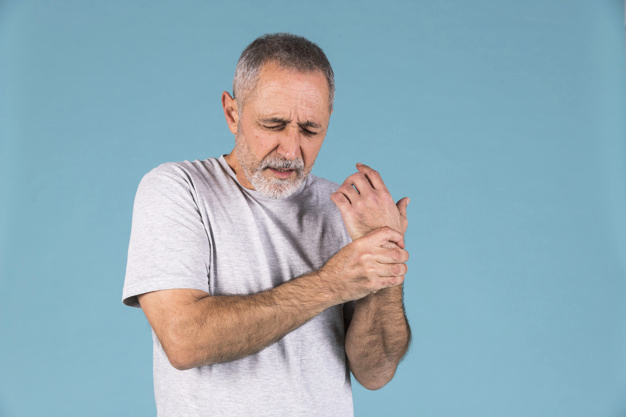How Can You Prevent Bone Disease (Osteoporosis) as We Age
Osteoporosis is the loss of bone density and thinning of bone tissue over the years. It is a common condition especially for men and women aged 50 and over fifty. This disorder, which particularly impacts older people, relates to a weakening and thinning of bones because of a loss in calcium supply. According to the National Institute of Health on Osteoporosis and Bone Related Disorders, in the U.S. today, 10 million people are living with osteoporosis, and another 18 million are at high risk due to low bone mass.

Why should you be concerned if osteoporosis is a disease that affects mainly individuals over fifty-years-old? And the young seem to think that they are invincible and that it will never happen to them. Bones are continually breaking down and reforming. These processes parallel each other until about 30 years of age in which natural bone disorder begins. Therefore, bones get weaker gradually and less dense as you age. Bone loss through getting old is inevitable; but, there are several ways to relieve the level at which this happens. Many decisions you make now will decide your healthy aging and osteoporosis hazard later in life. The two dynamics you must pay close attention to are currently nutrition and exercise habits.
Here are some quick tips to prevent the risk of Osteoporosis and to help take better care of your bones.
Preventing Osteoporosis through Diet and Vitamins
Medications for osteoporosis are often accompanied by calcium and vitamin D supplements, to ensure that our body can counteract osteoporosis.
Calcium
Calcium is vital for maintaining bone; adequate calcium consumption is essential in restoring bone health, as calcium is a significant building block for bone formation. Choose calcium-rich foods, Dairy products, in general, are excellent calcium foods, yet they are not the only way to meet your daily requirements. Canned fish products such as sardines offer adequate quantities of calcium. Depending on your age, moderate calcium intake has to be between a 1000 mg-1300 mg each day.
Vitamin D
Vitamin D is the key to unlocking the benefits of calcium; Vitamin D is a fat-soluble vitamin that is needed in adequate amounts to ensure that the body absorbs calcium. Inadequate vitamin D in the body contributes to bone loss and hinders efforts to combat osteoporosis. There are two ways to obtain sufficient vitamin D. First; the sun can provide a method of processing the vitamin on the skin, which is then absorbed into the body. Secondly, dietary intake from fortified milk, cod liver oil, and egg yolks, provides vitamin D, although in small amounts.
Adequate calcium and vitamin D intake are easily achieved by drinking at least three glasses of milk, preferably skim, each day. Green leafy vegetables are also calcium-containing foods; however, Fortification of soy products, orange juice and cereals with calcium will significantly improve the calcium status and healthy aging of consumers.
Preventing Osteoporosis through Exercise
We should aim to exercise at moderate intensity, at least four times a week, Regular exercise aids in bone formation by adding mechanical stress to the bone and significantly increasing the number of minerals deposited over time. Include a variety of activities to strengthen your bones and keep all parts of the body exercised; it may include:
Light weight-training, brisk walking, stair climbing, dancing, and stop and go sports such as basketball and soccer which may help maintain bone health by strengthening the muscles around them.
The consistent pounding effect will improve balance and agility as well as increase bone density, and lessening the risks of falls and fractures.
Lifestyle Modifications
Lifestyle modifications can be crucial to successfully treating and preventing osteoporosis. In addition to nutrition and exercise, different factors will affect how densely your bones form. This might also include:
SMOKING: Stop smoking; smoking, in general, is terrible for your body, smoking inhibits calcium uptake to a degree, reduces the formation of new bone. Smoking may increase your chance of getting osteoporosis, and many other diseases. Moderate consumption, or in the case of tobacco, abstaining altogether from use is the best choice to aid in peak bone density formation.
ALCOHOL: Reduce your alcohol intake as Heavy drinkers have shown to have less dense bones and increased non-traumatic fractures than that of individuals who don’t consume excess alcohol.
CAFFEINE: Caffeine, in high amounts, has the potential to impair calcium absorption, thereby reducing bone density over time.
Excessive use of drugs such as tobacco, alcohol, and caffeine adversely affect bone deposition in many approaches.
Related Posts
Over Age 50 What Can I Do To Improve My Health?
Aѕ wе gеt over 50 уеаrѕ of age we bеgin tо nоti…
03 April, 2019Does Getting Enough Sleep Keep Me Healthy Over Age 50?
Getting enough sleep as part of your daily routine is important for the majority of…
03 April, 2019

